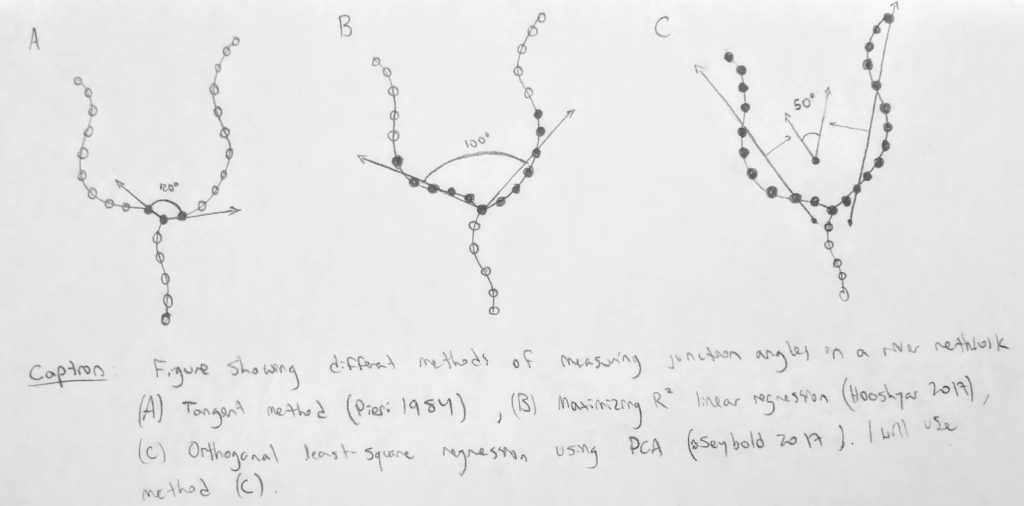This past July, Joe ‘Stringbean’ McConaughy set out to break the speed record for hiking the Appalachian Trail. Carrying a 25 pound backpack and eating 8,000 calories a day, Stringbean initially planned to average 50 miles per day and finish the 2,181-mile trek from Georgia to Maine in only 43 days. Twenty two days in and halfway to Maine, he felt confident that he was on track to break the record of 46 days. However, his pace slowed dramatically in the mountains of New Hampshire, and when day 43 came, Stringbean still had 151.5 miles to go and under 70 hours to beat the record.
As my third Fall semester comes to a close, I find myself in a place similar to McConaughy’s. I started working on my Junior Paper in September with a well-defined research path and have worked consistently for the past three months, meeting with my adviser every week. Yet, with a full draft of my JP due in only four days, I have fallen far behind my planned timetable.

There will be a time for reflecting back on why I fell behind my JP plans this semester and how to adjust my study habits and work strategies to get a better start in the Spring–but that time is not now. It is now day 43 and we have 70 hours and 151 miles left to go. If you have fallen behind in your independent work like me, now is the time for the final push. So here is my strategy for beating my JP draft deadline in four days:
Reduce and simplify: ‘What do I need to say?’
Whenever I read an interesting scholarly paper on my research topic, I think, ‘This result is fascinating. How can I test that hypothesis and incorporate it into my paper?’ Throughout the semester, these different ideas add up and while my project has evolved with the addition of more complex research goals, it has also become unwieldy. If you, likewise, find yourself dealing with unmanageable research goals, the first step is to reduce and simplify. Identify the absolutely necessary arguments you need to make and ensure that you will meet your basic research goals. Concentrating on the most essential things that you need to say will not only help you beat the clock, but will also make your paper laser focused, to-the-point, and concise.
While you may be tempted to start writing immediately, I find that taking the time to outline your paper can actually streamline the writing process, reducing the overall time you need to complete the paper.
Outline: ‘What order should I say it in?’
Whether before, during, or after I have drafted a paper, I find it extremely helpful to outline the structure and flow of my writing. I do this by identifying the specific motive behind every idea and argument I want to include in the paper, from the goal of the entire project to the color scheme of my figures. Once I know why I want to incorporate an idea, I find it easier to tie it to the other components of my paper. If you are including many figures in your paper, you might find it helpful to draw cartoon versions of each figure and caption them, so that they can be incorporated into the outline even before the final versions are completed. While you may be tempted to start writing immediately, I find that taking the time to outline your paper can actually streamline the writing process, both reducing the overall time you need to complete the paper and ensuring that your arguments are clear and well-structured.

Write write write: ‘Say it already!’
Once I have pruned and organized my ideas, I know what I want to say and have a structure to guide my writing. On the other hand, for many people, it is easier to write a lot first and then simplify and organize after the fact. If you’re unsure what works best for you, it can be helpful to move back and forth between these three steps. While everyone has different writing strategies, nobody should let the perfect be the enemy of the good. I know I tend to get hung up on sentence structure and word choice, but this is not the time for that. If you are behind, the only way you can make up ground is by writing a lot in a short period of time.
Falling behind on independent work, or any research paper, is stressful and it demands a lot of effort in a short period of time. However, I have found that if you simplify your ideas and organize them to understand the connections between the paper’s components, it can make the writing process easier, helping you meet your deadline while still producing top-quality work. And remember: no matter how deep the hole is, you can dig yourself out! In his final push, Stringbean covered 110.8 miles in the last 37 sleepless hours, finishing his journey in the rain and hail, and beating the previous speed record by over 10.5 hours.

